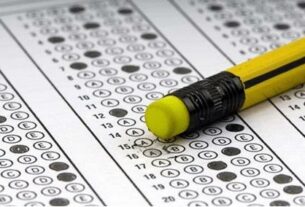Do you know what is self-taught? Although many people believe that this is a skill restricted to great geniuses, learning something without the help of an instructor is a skill that, with effort and dedication, can be developed by anyone.
If your desire is to learn how to be a self-taught and improve your knowledge in more subjects independently, you need to strengthen some habits and insert a new way of learning in your daily life.
To help you better understand this concept and improve your self- learning competence, we have prepared this post. Here we will present the definition and show you which practices you should adopt to be a self-taught. Check out!
What is self-taught?
The word autodidact originates from the Greek term autodidacticism, equivalent to the junction of auto, which means “oneself”, and didacts, which means “teaching”. It is an adjective used to specify those who educate themselves by their own efforts, managing their learning processes.
You must know or at least have heard about someone who learned to play an instrument, developed a profession or learned a new language without ever having attended a course. The self-taught person has this ability, he learns about a new subject or skill on his own, usually based on copying examples.
One of the main characteristics of self-taught is motivation, that is, the stimulus to seek that knowledge comes from the self-taught person, and not from an instructor. In addition, he also selects and prepares the methods that will be used, such as books, video classes, tutorials and everything else necessary.
How to be self-taught: tips
Discover now what you must do to become a self-taught.
1. Identify the subjects you like the most
Learning about something you like is certainly much more interesting and generates great results. Therefore, one of the first steps to be taken by those who seek the ability to learn on their own is to find what fascinates them.
So, discover the topics that most catch your attention and dedicate yourself to them. And even when you come across a subject that you don’t like, try to identify an interesting point of view.
2. Take responsibility for your learning
To develop self -education, it is necessary to be more than an ordinary student. After all, the self- taught person is not limited to the content offered in the classroom or in a book, but develops proactive attitudes, seeking new materials and methodologies.
So try to understand how you learn best. Learn which methods work best for your profile and how to delve deeper into a particular topic. By looking at different references you will analyze different perspectives and increase your understanding and confidence.
3 . have organization
Organization is an aspect that must be taken seriously when you want to do something well. Therefore, the self-taught person must not neglect it, but must strive to maintain proper planning and achieve optimal results.
If you really want to become a self-taught person, create routines and good organization habits. Properly prepare your study space and materials, set goals, create study plans and set fixed times. Thus, you will get better performance in your learning process.
4. Choose good research tools
In addition to everything that has already been mentioned here, another very important point is the definition of the tools that will be used for research. They need to be chosen correctly, taking into account the quality of the content provided and the reliability of the source.
Go to libraries, invest in good books and don’t forget to take full advantage of technology. On the internet, for example, you will find a huge amount of content, video classes, books, distance courses and websites that make you evolve in your studies.
5. Stay focused
Despite being a strong ally in obtaining knowledge, technology can become harmful to maintaining focus. Whether it’s cell phone messages, social media notifications, receiving emails, there’s always something to distract and make it difficult to concentrate.
If your goal is to increase knowledge and encourage self-education, it is important that you create strategies to conserve attention. Therefore, during the stipulated time for study, disconnect from distractions and dedicate yourself exclusively to learning.





